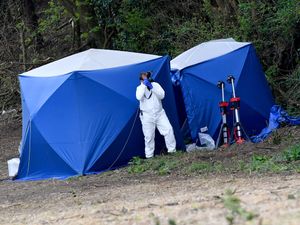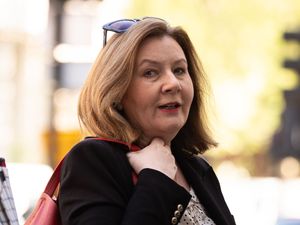Time to move on from past, says controversial Deputy PCC
The man controversially appointed as Deputy Police and Crime Commissioner says he is not interested in ‘political point scoring’, and is simply focused on serving the public.

Forty-year-old Waheed Saleem was appointed to the role by Police and Crime Commissioner (PCC) David Jamieson earlier this year, despite being rejected by the region’s Police and Crime Panel, who claimed he was ‘unfit’ for the role.
The rejection related in part to controversial episodes from Mr Saleem’s past, including when he received a one-year ban from serving in public office after leaking sensitive information as a Walsall councillor back in 2004.
Responding to the Police and Crime Panel, PCC David Jamieson claimed the rejection was ‘ill-founded and cheap’, a move which has sparked fury with councillors on the panel.
However Mr Saleem said it is time to move on from his past, insisting that he is more than capable of succeeding in the role given his experience.
“If other people want to concentrate on political point scoring, and that’s what their priorities are, then that’s for them to answer,” he said.
“For me it’s about doing my job. Yeah I’ve had a rough couple of weeks with the headlines etc, but I’m here to serve the public, and that’s what I’m concentrating on.
“We all make mistakes, as people would say, and the important part of that is what you learn from those mistakes. And I learnt a significant amount from that time [as a councillor].
“Over the last 18 years I have spent my life in public service – I have given back, and I have proven myself to the people that I can do high profile roles.
"I could have just gone off and never come back into public life, but that’s not me.

"Public service runs through my bones and through my veins, and I want to make a difference and do the right thing.
“I just want to draw a line under my past, and I wish other people would too, and look at all the significant positive stuff I’ve done.
"My CV is a testament to that, and that’s why David appointed me to this role.
“My critics cannot say that I don’t have the experience, expertise and knowledge to do the job, because I do.”
He wants to move on from discussions around his past onto some of his priorities in the new role – including increasing the representation of BME officers on the force, something which he says is ‘crucial’ in the wake of protests over the death of George Floyd in America.
“Diversity and equality has been a fundamental principle that I’ve worked on and promoted throughout my career,” he said.
“What happened with George Floyd was a tragedy, and is a stark reminder to us that policing needs to be done with the consent of the people, and that proportionality is the fundamental principle of policing.
“It’s crucial that the police force is representative of our communities, and that communities have confidence in the policing as well.
"Because if the police force doesn’t look like the communities they serve, there’s no legitimacy in policing.
“I was out at the protests last week, from 4 o’clock all the way til 9 o’clock looking at policing and at how we responded to the demonstration.
“The protest was done in a safe and peaceful way, and the message was very clear to all of us that racism has no place in our society, and that racism plays no part in our policing either. And that we need to be committed to work on that issue, and continuously have that at the forefront."




